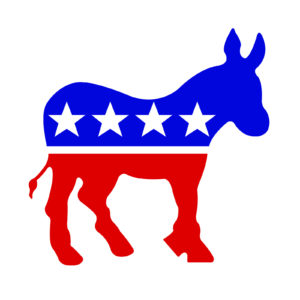Al Hunt, the noted former executive Washington editor and bureau chief for the Wall Street Journal and now a columnist for Bloomberg Politics, wrote a column last week that completely misses the mark.
Mr. Hunt was covering what he, and others, say are the Democrats’ increasing chances to claim the House majority in the 2018 elections. He cites the high number of Democratic activists becoming congressional candidates, thus overflowing party primaries in key districts. He, of course, “credits” President Trump as being the catalyst for encouraging this avalanche of new activism, saying it is “the one thing Democrats like about Trump.”
But increasing the number of contenders against potentially vulnerable Republican incumbents will have the exact opposite effect of creating the positive energy to which Mr. Hunt alludes in his column.
Lately, the Democrats have been highlighting the 14 Republicans from districts that Hillary Clinton carried and who recently supported the House leadership’s healthcare bill. Currently, in just those 14 districts, 55 Democrats have already declared their candidacies.
Today, we know two things about these candidates. First, 41 of them are going to lose, since voters in each of the fourteen districts will only choose one Democratic nominee. Second, the activists that Hunt sees in these primaries will, in every case, move the eventual nominee to the extreme political left in order to capture the nomination, thus forcing the party to begin the respective general elections with a candidate perched on an ideological limb. This will allow the Republican incumbent to move largely unencumbered toward the open middle ground, thus making him or her more acceptable to the increasingly independent voter base.
But, how truly vulnerable are these particular 14 individuals, keeping in mind the Democrats need to retain all 194 of their current seats, and then convert another 24 Republican districts in order to gain a mere one-seat House majority in the 2018 election?
Seven of these 14 incumbents are serving at least their fifth term (i.e. Rep. Erik Paulsen, R-Minn.), all the way to 15 (i.e. Rep. Dana Rohrabacher, R-Calif.). In 2016, the group of healthcare “yes” votes averaged a cumulative 56.4 percent re-election percentage even though Hillary Clinton carried each of their districts. Finally, based upon the district characteristics, including the Clinton percentage and the quality of opponents currently assembling as challengers, it appears only one so-called vulnerable Republican, California Rep. Darrell Issa, can even be considered in a toss-up situation. The remaining 13 are favored with either Likely or Lean Republican forecasts at the present time.
A freshman California Democratic Congressman may have a better understanding of the party’s current situation than Hunt and many Washington Democratic insiders, however.
J. Luis “Lou” Correa is a former Democratic state senator who in November won the Anaheim/Santa Ana congressional district that veteran Democratic Rep. Loretta Sanchez vacated to run unsuccessfully for the U.S. Senate. Rep. Correa views himself as a centrist who wants to work with members of both parties to “make people’s lives better.” The nation would be far better off if more Washington politicians believed as Mr. Correa.
In a recent Washington speech, Rep. Correa said he believes the Democrats are entering into a “civil war” between the Bernie Sanders’ leftwing and establishment factions within the party. He pointed to a physical altercation that almost broke out at a recent meeting of his Orange County Democratic Central Committee as an example of how tensions are beginning to boil over.
The large number of activist candidates clamoring to oppose a small number of Republican incumbents more closely reflects Lou Correa’s vision about the Democratic Party’s internal status rather than what Al Hunt, and many others within the Washington Beltway, perceives. If the groundswell emerging from the Democratic grassroots continues in the present fashion, the party leaders will once again be surprised at the next election’s outcome.

